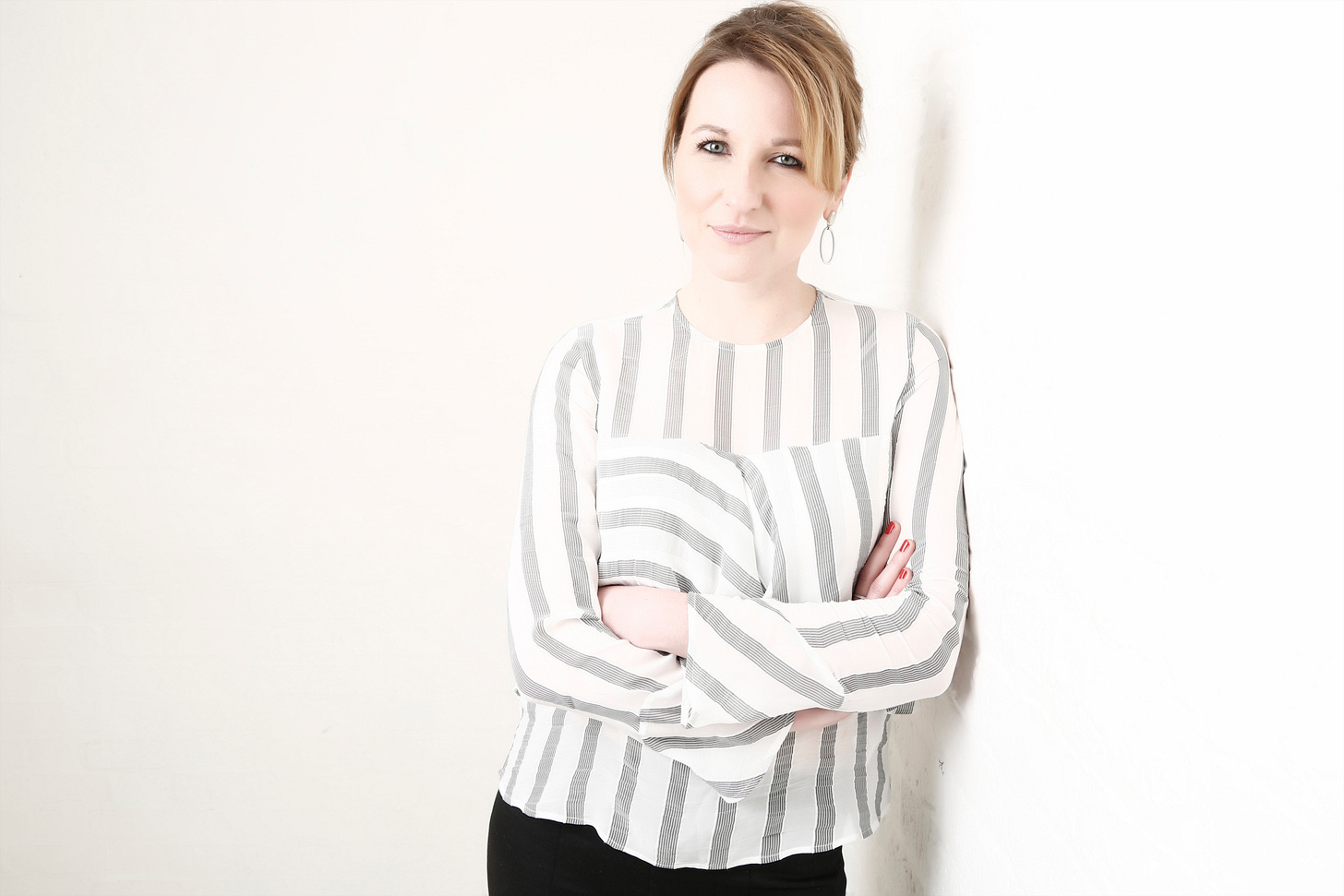Welcome to our #72 weekly newsletter.
“For women taking control of their financial future”
-Jana Hlistova
From The Purse
In this week’s newsletter, we focus on femtech and a female-led VC called FemHealth Ventures in the US raising $50m to invest in women’s health technology.
Billionaire and hedge fund manager, Ray Dalio was not a bitcoin or crypto supporter for a long time. But recently he confirmed that ‘he owns some bitcoin’ and that he’d rather buy bitcoin than a bond.
We explain how money printing is leading to inflationary pressures and why bitcoin is a hedge against inflation (as well as a store of value).
You can review the news in brief so you stay on top of global financial, economic and investing trends.
Don’t forget to listen to The Purse Podcast interview with Marina Spindler about women in crypto and how to start investing in crypto.
Stay safe everyone & look after yourselves.
I hope you enjoy this week’s newsletter.
Until next week,
Jana
Ps thank you to everyone who gave feedback last week!
The rise of femtech
FemHealth Ventures: raising $50m for women’s health technology
A common misconception (aka gender bias) amongst investors is that the female market is simply too narrow or niche.
Put another way, mostly white, male investors are clueless (and embarrassed) talking about topics such as pregnancy, menopause or the pelvic floor.
This in part explains why women’s health technology or femtech (a term only coined in 2016 by Ida Tin) has been underestimated or neglected as a market opportunity.
We know that less than 3% of venture capital goes to female founders and 80% of healthcare VCs have never invested in women’s health.
But as more women step in to venture capital and set up their own funds, female-focused startups are accessing more capital than ever before.
And this is not only good news for female founders but for women in general.
The femtech market
Femtech spans a wide range of applications, from online screening for cervical and breast cancer to fertility tracking bracelets and remote medical consultations.
The segmentation (by indication) is:
Maternal Health
Fertility
Menstruation
Sexual Wellness
Others
Research by Frost & Sullivan says that the female market is not only gaining more attention across the health care industry, but women have higher purchasing power.
Here are some stats:
80% of the household health care spending is done by women.
According to recent research by Arizton, femtech is growing at a CAGR of 13.32% during 2021-2026 and the market is worth $75.74bn (up from an estimate of $50bn).
In 2020, women’s health companies raised $1.68bn across 242 venture financings, up from $1.35bn in 215 funding rounds in 2019, according to market tracker CB Insights.
Perhaps an understated, but fundamental point here is, that as more women step into entrepreneurship, female founders are more likely to build products and services for a problem they have either personally experienced or intimately understand.
And this is unlocking pent up demand by women all around the world.
The market is also set for massive growth following femtech startup success such as Modern Fertility, a provider of fertility-hormone testing, which recently sold to Ro, a digital elective care and telemedicine provider, for an estimated $225m.
It is likely that recent successes in the field will spearhead an increasing number of larger investments.
FemHealth Ventures
Research shows that women are more interested in responsible investing, which includes ESG, education and health.
FemHealth Ventures, a new venture-capital firm is one such example.
The VC firm is set up by two women with diverse professional backgrounds: healthcare investor Maneesha Ghiya and Noraan Sadik, an attorney and startup founder.
They are raising $50m for an investment pool aimed at women’s health, backing companies targeting conditions:
that only affect women, such as cervical cancer;
diseases that mostly affect women, such as multiple sclerosis;
and illnesses that affect women differently than men, including heart disease.
According to Maneesha, even though some investors consider that approach to be too narrow, it is this specialisation which allows FemHealth to attract the best deal flow in its field, vet opportunities quickly and provide support for their portfolio companies.
Maneesha expects to make 15 investments from the fund, including in pharmaceuticals, medical devices, diagnostics and digital technologies (the debut fund will close end of July).
Women’s health has never looked better.
Examples of femtech & women’s health startups
News in Brief
Financial news
The oil price has hit a new two-year high, with demand increasing as economies emerge from lockdown.
China’s industrial input price inflation is its highest in a decade. This could have far-reaching implications for global growth and prices.
Growth in America’s services sector has hit a record pace-further highlighting the strength of the recovery.
The European Central Bank (ECB) balance sheet has reached a new record, inflation in the eurozone has risen to 2%, above ECB target.
G7 nations reach historic global tax deal to make tech giants pay their fair share. The minimum tax is at a rate of at least 15%.
UK jobless claims hit a new pandemic low. It shows that more firms are holding on to their current staff as well as hiring new employees.
The UK economy is enjoying ‘eye-popping’ growth: activity at UK service providers jumped in May at the fastest rate in 24 years.
Bank of England (BoE) monitors UK housing boom as it weighs inflation risk. The BoE expects the pressures to be temporary. Inflation is currently at 1.5% and is expected to rise above 2%.
UK house price growth is at the highest level in nearly seven years at 10.9%. And available deals for a two-year fixed mortgage are almost the best since the Brexit vote (in 2016).
Tour operators and airlines lost more than £2bn in value after the UK government removed Portugal from the ‘green’ list of countries exempt from significant travel restrictions.
Crypto: bitcoin, ethereum & DeFi
Bitcoin price has slid after another tweet from Elon Musk who hinted at a potential split from the largest cryptocurrency. The coin dropped as much as 6.3% (Saturday morning) and it is currently trading at approximately $35K+. Bitcoin is up about 280% over the past year and ether is up approximately 1000% this year (ETH price is here).
El Salvador’s president plans to make bitcoin legal tender. If backed by congress, the Central American country would be first in the world to formally adopt the digital currency. It would be used alongside the US dollar, El Salvador's official currency.
Jack Dorsey on bitcoin: ‘I don’t think there is anything more important to work on than bitcoin’. The CEO of Square and Twitter believes that ‘bitcoin has the potential to create a new financial infrastructure that is more inclusive and supportive for underserved communities..’.
Andreessen Horowitz's third crypto fund, a16z is in talks to raise $2bn. That is double the size what people were expecting.
Cryptology Asset Group commits $100m to invest globally in crypto-related venture funds. Founded by Christian Angermayer and Mike Novogratz, the fund will focus on first time funds and emerging managers including seeding funds and taking stakes in GPs too.
Cryptocurrency dealers face closure for failing UK money laundering test. Up to 50 companies dealing in cryptocurrencies may be forced to close.
Ray Dalio: ‘I’d rather buy bitcoin than a bond’
Bitcoin as a hedge against inflation and a store of wealth
Traditional personal finance says that we should own stocks and bonds (the standard split is 60% stocks and 40% bonds).
Stocks tends to be more risky (therefore more volatile) but generate growth for investors.
Whilst bonds are bought to balance an investment portfolio (by being less volatile), they generate smaller returns.
But according to US billionaire and hedge fund investor, Ray Dalio this approach to managing your money may no longer hold true in an ‘inflationary world’.
He has said ‘Personally, I’d rather have bitcoin than a bond’.
Printing money and inflation
To avoid a global economic crisis (due to the pandemic), governments around the world continue to print money.
Currency is being devalued as more money is being pumped into the global economy. And the demand for labour goes up, as more people spend (but capacity is limited).
Ray Dalio describes this as ‘inflationary pressures’ which will cause a change in ‘the amount that is in the hands of individuals’.
So whilst the value of cash is eroded, it could be good for assets such as real estate, stocks and cryptocurrencies (specifically bitcoin). But only to a point.
The price of bonds
As the price of bonds rise, their future returns expect to go down. And as the price comes closer to the interest rate (which is close to zero), there is less incentive to buy bonds.
To raise interest rates (which would incentivise more bond-buying) could lead to a financial and economic disaster, which is exactly what the governments are trying to avoid.
Bitcoin as a store of value
Bitcoin is increasingly regarded as a hedge against inflation and a store of value.
It has a limited supply (21m bitcoin), which means that more bitcoin can not be printed. Because it is open source, decentralised and ‘permissionless’ money, the government can not generate bitcoin.
This is why bitcoin is often referred to as a store of value (like gold, but its properties are different to gold).
Many argue that bitcoin is too volatile and therefore risky. But it depends on your time horizon as an investor.
According to bitcoin evangelist and CEO of MicroStrategy Michael Saylor, most investors hold bitcoin for between 1-5+ years.
Bitcoin is up approximately 280% this year and has increased (on average) 200%+ per annum over the last 10 years.
More on bitcoin:
The Purse Podcast


Global report: women in crypto
We talk to Marina Spindler about her global report about women in crypto.
Marina talks us through the key findings in the report including how women are changing the status quo and seeking financial independence, why self-directed learning in blockchain is key and how to start investing in crypto.
Listen on all podcasting channels including iTunes, Spotify and Anchor.
Coffee Break? Read This
Disaster patriarchy: how the pandemic has unleashed a war on women
Meet the woman running the highest-ranking Fortune 500 company ever to be led by a female CEO
We’d love to hear from you. Get in touch with Jana via the The Purse website or tweet @jointhepurse and @janicka.
The Purse Ltd. Copyright 2021 & All Rights Reserved.
The Purse provides content for informational purposes only, we do not provide product recommendations or investment advice. Please do your own research or speak to a financial advisor.

















Share this post